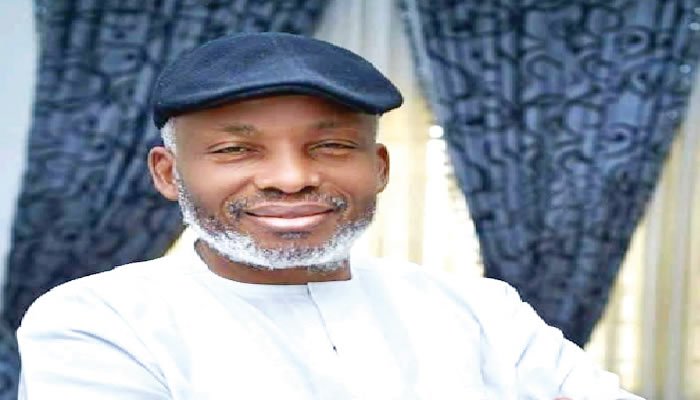
The lawmaker representing the Cross River South Senatorial District, Senator Gershom Bassey, talks to TOPE OMOGBOLAGUN about the Senate’s threat to impeach the President, Major General Muhammadu Buhari (retd.), and the 2023 elections
We have seen events unfold very rapidly in the Senate. You joined those who walked out, and you were also at the People’s Democratic Party lawmakers’ meeting, which was held on Thursday. Don’t you think the impeachment threat against the President is coming a bit too late?
Okay, I think the media somehow missed the point of our actions. The point of our actions is to ensure safety and security in our country. That is the whole point of our actions. The point of our action is not impeachment. It is to ensure safety and security in Nigeria. And that is why we have given a six-week threshold within which we want the executive, particularly Mr. President, to do something about security in our country.
Now, our hope, our best hope, is that the President will respond to what we are saying and to what we’re doing. And at the end of six weeks, everything would have been sorted out, the security situation, to a large extent, resolved. And that is the point of our action. So it is part one that should be the focus, not so much part two.
Part two happens when we fail to achieve part one. In other words, if there is insecurity, continued insecurity, without the type of response that we expect within six weeks, then we move to part two. So it appears that the focus has been on parts one and two, the impeachment notice. Yes, that one is real. We are serious about that. But we will only get there if part one, which is the action against the situation in our country, For instance, why are there people still in captivity from the Kaduna train attack?
Why has nobody been arrested, or has nobody been held accountable for what happened in Kuje prison?
These are actions that can immediately be taken by the executive by Mr. President to show that he’s in tandem with us. There are a number of actions that need to be taken to show that yes, we are doing something about this situation. And we are going to resolve this situation. And that is what we are talking about.
Do you think the opposition lawmakers have the numbers to carry out an impeachment?
It’s not just the opposition, and I think a number of our leaders have made that point. That point was made again today (last Thursday). It’s about the Senate. Not just because we are the ones speaking. We (the opposition) are the ones at the forefront. But it’s not just about us. It is about the entire National Assembly.
If the President is unable to achieve the task in six weeks, going by the predilection of the Senate President to the issue, are you sure he will cooperate with you on this?
I think the Senate president said it yesterday when we were talking about something else. And he said, “Look, it’s not about him, it’s about the Senate. He presides over the Senate. And it’s not about him; he’s just the presiding officer. It’s about the entire Senate. So yes, I’m sure that the presiding officer will agree with whatever the Senate as a body agrees to.
This is not the first time that we’ll have issues of security being discussed in the Senate. It has been discussed several times. And a lot of positions have been taken by the Senate. Can you assure Nigerians that this impeachment threat will not just be on paper and that after a six-week ultimatum, nothing will be done by the president? Will the lawmakers truly take steps in that direction?
Well, our hope is that we won’t get to that. That is our hope; our hope is that the executive will act and will take steps just as I have said. People are dying every day. People are insecure; I don’t know how you feel. But a lot of people feel insecure wherever they are in Nigeria. That is the essence of the action. It is to reduce and, to a large extent, if possible, even go towards eliminating insecurity. That is the whole point of the actual. So yes, I know that it’s nice to talk about the impeachment. And so yes, we are serious about that. But our hope is that we do not get to that, that the President and this government finally respond to all notices, and to all the cooperation and all the support that we at the National Assembly have given to this government, and that they finally do the needful and restore security to our nation. That is the essence of the action.
Do you think that six weeks is actually possible for the President to meet the demands of the Senate, especially because of the unending insecurity issues? Also, looking at how the impeachment is being championed by opposition parties, don’t you think that it would be regarded as a political war against the president, especially now that we’re in a political season?
Do you feel secure in Nigeria? So how can it be political? We’re not talking politics here. We’re talking security. Security is not politics. And security should not be politicised. Like I’ve said to you, this is a bipartisan effort to ensure that the executive is up and doing. Six weeks is the last stroll. We’ve been giving these recommendations, we’ve been giving motions, and we’ve been giving budgetary support since 2018. We began talking about the insecurity issues in Nigeria in 2017.
And so it’s not as if it’s just happened in the last six weeks. It’s been happening. We’ve been talking about it; we’ve been passing resolutions; we’ve been moving motions; we’ve been urging the executive; we have given all that they’ve asked; they’ve said, “Oh, we don’t have money; we’ve given the money.” They brought a supplementary budget, we’ve passed the supplementary budget, and we’ve given cooperation that we can every single piece of advice, you name it, and we’ve done it. So six weeks is just the last stroll.
Can you, for the purpose of clarity, run us through what happened on Wednesday at the plenary? From the account of the Minority Leader, the Senate President was supposed to make some pronouncements after the closed-door sessions, but he did not make those pronouncements after the closed-door session. So just tell us what was supposed to be before the staged walkout?
Well, as you’ve said, what we discuss in closed sessions stays in closed sessions. And generally, after the closed-session, the Senate President or the presiding officer comes out and briefs the public on what has been discussed. Now I know that I heard the Senate President come out and say something after the group closed-session. But I think the perception was that he did not say enough and that he did not describe what actually happened there to the satisfaction of a lot of senators. And that is why you saw the point of order that was raised by a central figure, Senator Philip Aduda, and, of course, that point of order, the senate president of technicalities, shut it down. And that was really what happened. There is nothing more than that.
Would you say that the Senate President was trying to protect some particular interest, especially after he refused to carry out what was agreed upon?
I think that question is for the senate president
Garba Shehu, in response to the impeachment notice, said the PDP lawmakers were speaking for themselves and not speaking on behalf of the constituency they represent. What would you say to that?
Is Garba Shehu from your constituency? He should talk about his own constituency. He’s not from my constituency. So he can’t speak for my constituency.
You lost the governorship ticket in your state, and there were a number of rumours and speculations about the election. Could you kindly give us an overview of the election?
In Cross River State, we went for the primaries, and the party opted to go in a different direction than we wanted them to go in. And so this is where we are.
So, what’s the next move?
I’m a party man, so there’s no next move. Once the party takes a decision, we abide by the decision for now.
Some senators said they sent a number of resolutions to the President. Could you mention one or two of the resolutions on security sent by the Senate to the president?
On security, we have had two security conferences. And we’ve come up with a whole list, which was sent to the President.
Well, one of the things we recommended at the time was the change of security chiefs, which was done to a large extent, but it hasn’t changed for the sake of change. It was changed in order to achieve some level of performance. And, you know, the bottom line is that we’re not seeing that performance. So we don’t know what the problem is.
It is the executive that will do better. But there are a number of things that we recommended to them. They now came back with a supplementary budget of about N800bn or N900bn for security reasons, which all of you are aware of. The budgets were passed on the floor, we passed them, and we gave them the N800 or N900bn that they asked for.
So we’ve been prompt all the time in responding to them anytime they ask for anything concerning security. The Senate is very serious about it, as is the National Assembly as a whole. So that’s where we are. The bottom line is that security is not improving. And so we’re not even talking about money now. We’re just saying let’s improve security.





